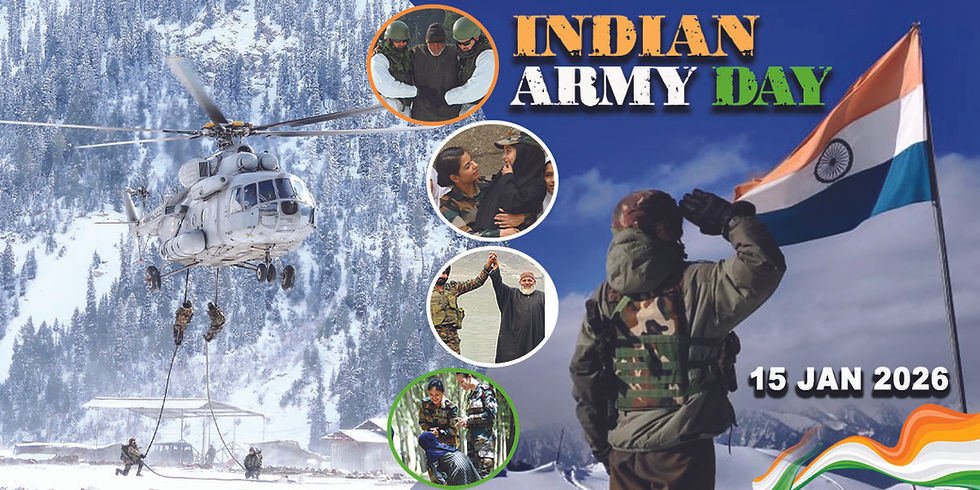THE LEGEND OF MAQBOOL SHERWANI
- Soldier Stories Of Kashmir

- Oct 18, 2022
- 3 min read
At Baramulla, which is about 50kms from Srinagar, Maqbool Sherwani was born into a Muslim household. His father was Mohammad Abdullah Sherwani. They ran a little soap manufacture in the family. Sherwani had always been actively involved in the local political scene since he was a young man. He joined National Conference in 1939, and over time, the region started to identify him as a devoted National Conference activist. Sherwani, who was adamantly secular, adopted secularism as his political and personal doctrine and gave its practise a great deal of weight.
When Mohammad Ali Jinnah visited Kashmir in May 1944, the energetic and young Sherwani gained significant notoriety. Sherwani destroyed the sectarian politics of the Muslim League and attempted to drape a garland of shoes around Jinnah's neck when addressing the enormous crowd in Baramulla, where Jinnah tried to advance his two-nation theory and talked in the name of religion. He stopped talking and ordered him to leave the podium. Sherwani raised the cry, "I am against the ideals of sectarian politics of the Muslim League."
"Irshad, Sher-i-Kashmir ka kya? Hindu, Muslim, Sikh Ithaad (What does the lion of Kashmir want?) (The harmony of Muslims, Sikhs, and Hindus).
The actual story of the hero starts from Baramulla, which was the major commercial hub and the richest town in the valley before it was taken over by Pakistani tribals on October 26, 1947. These tribals went on the rampage at this crucial access point and proceeded further to take it. They committed rape and pillage for three days, focusing especially on the Sikh and Hindu communities as their targets.
There were 22 National Conference volunteers and Sherwani was one of them who joined the National Militia's Resistance Forces, which were designed to operate behind enemy lines. He oversaw several militia detachments that travelled to various locations to infuse confidence and unity among Kashmir's terror-stricken population. He volunteered to enter places that the tribesmen controlled while posing as someone else. He acted as an explorer who would travel from town to village on his motorcycle, holding public gatherings and campaigns to unite people and fight the raiders together, earning him the nickname "motorcycling militia man."

Sherwani was good friends with several Swayam Sewaks working in the town of Baramulla, despite differences in politics and religion. He saw himself as a member of the Kashmiri Hindu community and even helped the Kashmiri Pandit families in the nearby Sopore neighbourhood. In order to preserve their dignity and honor, he personally interacted with the suffering Kashmiri Pandit families, staying in the town right up until the morning of October 29, 1947. During the Pakistani tribal onslaught in October 1947, he played a crucial role in rescuing the Kashmiri Pandits of Sopore.
He misled the invaders, distracted them and forced them to wander aimlessly through the Sumbal region on the incorrect paths in order to thwart the raiders' march towards Srinagar. He wasted their valuable time until the Indian army's Sikh Regiment arrived in Srinagar to defend it, upsetting Pakistani strategists' plans to seize the airport there, take control of it, and cut off the city from India But soon these Pakistanis realised and Maqbool was crucified in Baramulla's main square as a punishment for leading them astray and to instill fear among the population. The tribal members wrote KAFIR on his shirt using his own blood. Sherwani chose death over betraying his nation. If he shouted "Down with Sheikh Abdullah," the invaders promised to release him. Instead, Maqbool Sherwani spat in the raiders' faces bravely and yelled the well-known phrase "Hindu-Muslim-Sikh Itihad, Azad Hindustan Zindabad."
The circumstances surrounding his murder and his unwavering refusal to submit to the Pakistani invaders, despite being subjected to severe torture, makes him a hero of the 1947 tribal invasions. The bravery with which he attempted to stop the Lashkar's march without thinking of his own life is truly admirable but also a heart-breaking tragedy. Because of his fierce commitment to and allegiance to his nation, he became so well-known in the public eye that he earned the title "Lion of Baramulla."
His execution eventually became folklore, and because of his unwavering devotion to his country, it slowly turned into a legend in the valley. Later on, both young and old Kashmiris found inspiration from his deed of bravery. Although he is no longer with us, millions of patriots still carry his spirit.







Comments